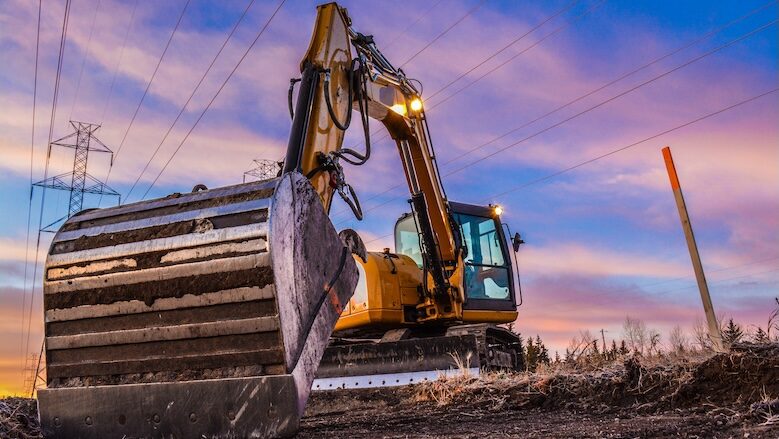
Despite Help From Good Samaritan, Deadly Accident Brings Grief and a Father’s Anger
[ad_1]
Working in a narrow, shallow trench laying water pipe one morning, neither Deigo Miranda, 22, nor Dominic Herbert, 20, had much apparent cause to be concerned about the power lines overhead. They knew that excavator operator Matthew Cook, with the help of another crew member on the ground, was using the excavator to lift water pipe segments near to where the next trench length would be cut.
It was April 17 and the crew was working in the north Tucson area in Pima County, Ariz. Their employer, JW Civil, had a contract with the City of Tucson water department to install a new water line.
What unfolded that day is a an example of why equipment contact with overhead power lines, whether it is a crane, a concrete pump or a boom lift, can have lethally unpredictable consequences, which in this case can go beyond the project site.
As he swung the excavator, Cook later told a Pima County deputy sheriff officer at the scene, he suddenly heard a loud zap which he knew immediately was electrical contact either by contact or arcing from the power line to the excavator’s arm. He said he saw that there was fire overhead and behind him on the ground and then realized that a power line was actually on his excavator, forcing him to stay put in the cab.
Deigo’s brother, Mario, had been holding the pipe as it was being moved. When he heard the zapping sound Mario felt electricity flowing through his arms down to his legs; his eyes fluttered and he briefly lost vision. When it returned he saw Deigo crawling out of the trench while Dominic lay there.
Both Deigo and Dominic seemed to be on fire, witnesses said, but Dominic didn’t move and Deigo was still alive.
The overhead power line had apparently fried when it came into contact with the excavator, falling into the trench with them.
Because of the live power line, crew members stood by helplessly, afraid to approach Dominic before emergency crews arrived, witnesses told the county police. When emergency crew did arrive, they pronounced Dominic Herbert dead at the scene.
Meanwhile, Deigo’s family gathered at Banner-University Medical Center, where he was in intensive care with severe burns. A day after the accident the family told a local television reporter that they were eager to learn the identify of a good Samaritan, an employee of Rite Way Heating, Cooling & Plumbing, who had stopped, removed a fire extinguisher from his van, and put out the fire burning on Deigo and Dominic.
Interviewed at the worksite by a deputy sheriff, the van driver, Thomas Boscia, said he saw the two workers on fire in the trench and grabbed the fire extinguisher to put out the fire. He said he also wanted to grab a rake out of the truck to pull them free, but someone stopped him.
Later, a deputy sheriff on the scene also used the fire extinguisher that Boscia had used.
Diego’s father, Joshua Diaz, told local television station WKOLD that Boscia possibly saved Deigo’s life.

A GoFundMe page started by Deigo Miranda’s girlfriend seeks funds for medical and living costs during the emergency created by his injuries and long recovery.
The safety issues raised by the accident still are being sorted out while federal safety officials investigate. The owner of the small contractor, Jacob Wareham, said in an email that “out of respect of our employees and all those involved, we have no further comment at this time.”
He added: “We are heartbroken and praying that God’s strength and comfort surrounds all those affected.”
There was one additional worry.
As the crew and company owners at JW Civil processed what had happened, several crew members and Wareham saw threats against them popping up on social media by Herbert’s father, blaming them for Dominic Herbert’s death.
Two days after the accident the police arrested Dominic’s father for allegedly using a computer to issue threats and intimidate, a state crime. Herbert’s father later told the police he regretted what he had done out of anger in the hours after losing his son, according to the county sheriff’s report.
It isn’t clear if the excavator actually touched or simply came too close to the 80-kV power line that an accident reconstruction expert working for the sheriff’s department stated was 20 ft off the ground. But it is a well-known danger in equipment operation.
Under Occupational Safety and Health Administration rules, operators are supposed to determine if any part of the equipment, load line, load, rigging or lift accessories could get closer than 20 ft to a power line and if so, choose from a menu of safety options for abating the hazard. The options include de-energizing the line, holding planning meetings, using tag lines to help identify and make the lines easy to distinguish or position spotters.
There is another dimension to the hazard that isn’t as well known: an operator’s ability to perceive the distance.
According to the website of the Crane Power Line Safety Organisation, there is evidence that equipment operators may be unable to make accurate assessments of the distance from the energized line while looking up toward the sky.
Researchers R.J. Cunitz and L. Middendorf published a paper in the industry journal Hazard Prevention in 1985 that put forward several explanations for inadvertent contact with power lines, including poor lighting conditions, over familiarity on the part of the operator, poor training and bad judgment.
According to the CPLS explanation of the research, the main cause was that “human eyes are unable to gauge the distance between the crane and power line against an undistinguished sky.” The lack of either shadow or other objects against which to make a visual comparison, the authors found, undermined an operator’s ability to make a sound assessment.
Cook’s judgment of the distance from the overhead lines, and whether any other safety measure should have been taken, will likely be addressed when OSHA’s investigation findings are made public in October or November.
Neither Herbert’s father nor brother could be reached for comment, and Deigo Miranda’s girlfriend did not return a message to her sent via the GoFundMe page she set up to cover expenses during Deigo’s long recovery. The couple have one small child, she told WKOLD, and another is on the way.
[ad_2]
Source link
Post a Comment
You must be logged in to post a comment.






